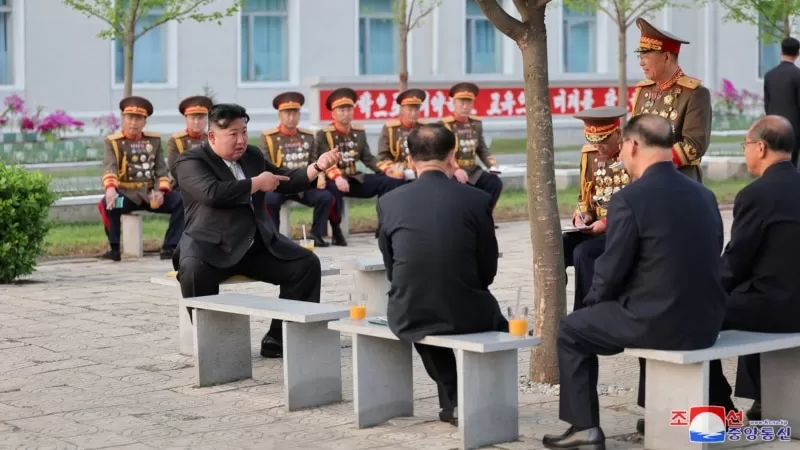The recent statement by South Korean national security adviser Chang Ho-jin has sparked a rare public rift between the Biden administration and one of Washington’s key allies in Asia. The disagreement centers around the approach to achieving Pyongyang’s denuclearization, with South Korea emphasizing a firm stance and the US showing willingness to consider interim steps.
Last week, both allies made separate comments about the possibility of taking interim steps towards North Korea’s complete denuclearization. Chang Ho-jin stated in an interview that “there are no such thing as interim steps” towards denuclearization, while a US National Security Council spokesperson confirmed that “building trust with the DPRK and making progress towards denuclearization will take time.”
The difference in views between the two allies is not new. In fact, the approach of taking interim steps towards denuclearization has been tried and failed by previous administrations, including the Clinton and George W. Bush administrations, during negotiations with North Korea. However, the Biden administration seems to be open to reconsidering this approach.
In March of this year, senior US officials expressed interest in considering “interim steps” in talks with North Korea, which have been stalled since October 2019. This move was met with concern from Seoul, as they fear that mentioning interim steps and corresponding measures, such as threat reduction, could hinder future negotiations towards complete denuclearization.
Experts believe that South Korea’s concern stems from their desire to maintain a firm stance on North Korea, without appearing to be flexible or compromising. Andrew Yeo, a Korea Studies expert at the Brookings Institution, stated that “Seoul may not want to give the appearance of flexibility, so is perhaps denying any legitimacy behind an ‘interim steps’ approach.”
Under President Yoon Suk Yeol’s administration, South Korea has taken a tough stance on North Korea, focusing on deterrence and alignment with the US and trilateral security cooperation with Japan. This stance has been consistent for the past two years, and any deviation from it could be seen as a sign of weakness.
Evans Revere, a former State Department official with experience in negotiating with North Korea, believes that some officials and critics in Seoul and Tokyo are worried that the US may shift its focus towards other goals, such as confidence-building and tension reduction, instead of denuclearization. There is also concern that the US may be willing to engage in arms control talks with North Korea, effectively accepting their nuclear arsenal as permanent.
However, the mention of “arms control” or “nuclear freeze” by Seoul, and “threat reduction” or “risk reduction” by US officials, does not necessarily mean that they are willing to accept North Korea as a nuclear state. At a recent event held by the Center for Strategic and International Studies (CSIS), Mira Rapp-Hooper, a senior director for East Asia and Oceania at the National Security Council, stated that the US will discuss threat reduction with North Korea as part of the “pathway to denuclearization.”
Victor Cha, a senior vice president at CSIS, believes that any negotiation towards denuclearization must start at step one, which could be called “interim measures” or “initial denuclearization.” He clarified that this does not mean accepting North Korea’s nuclear status, as that is not the policy of either Washington or Seoul.
In conclusion, the disagreement between the US and South Korea over the approach towards North Korea’s denuclearization highlights the complexities of dealing with the DPRK. While South Korea prefers a firm stance and no mention of interim steps, the US is showing willingness to consider such measures as part of the negotiation process. Ultimately, both sides share the same goal of achieving complete denuclearization, and it is crucial for them to work together to find a viable solution.

